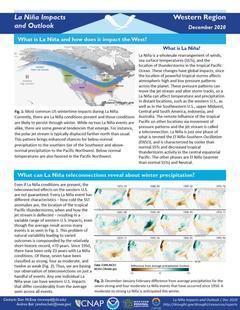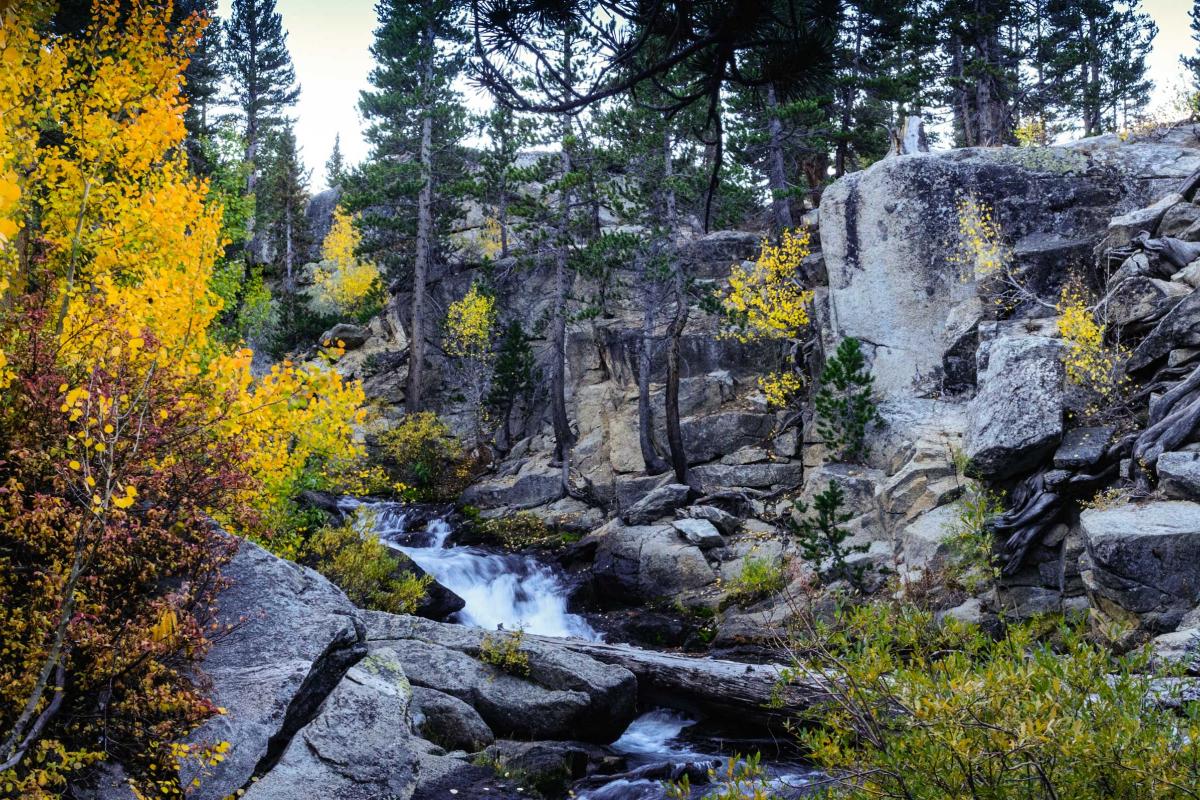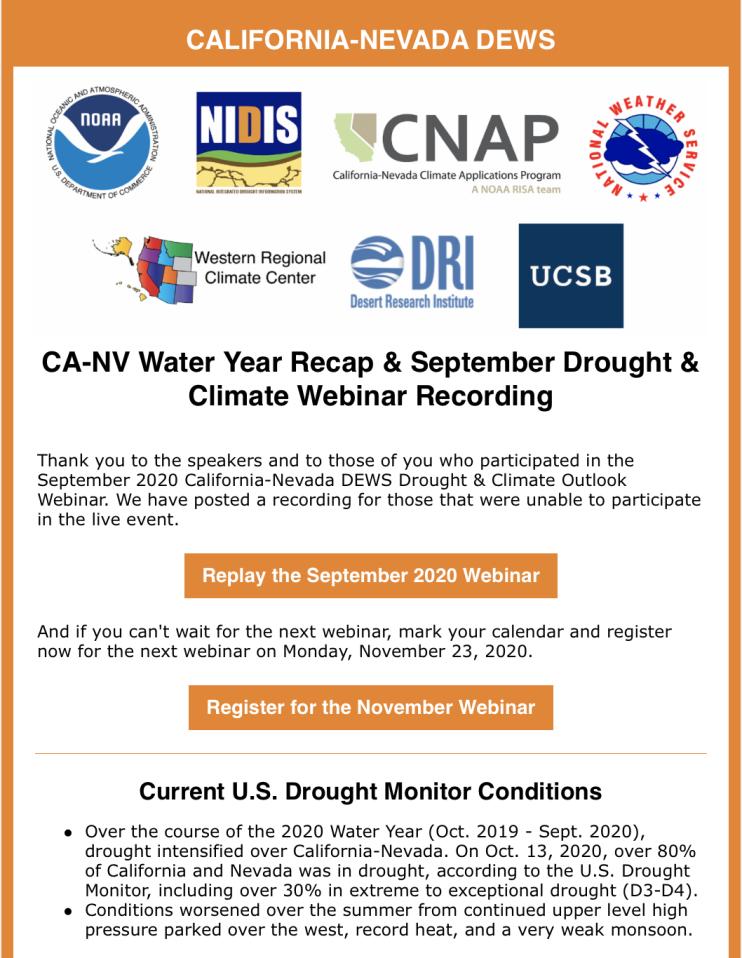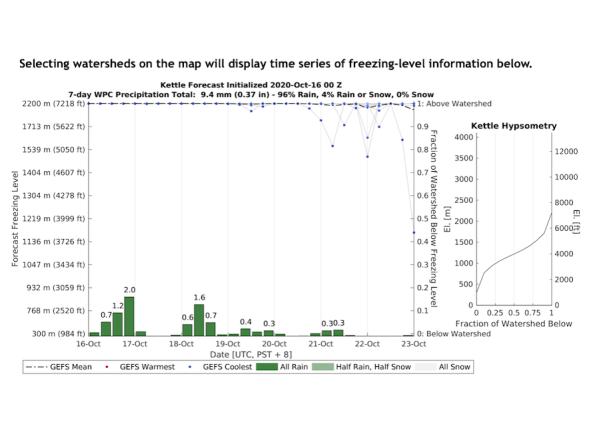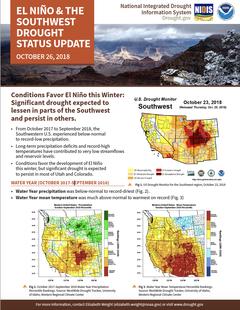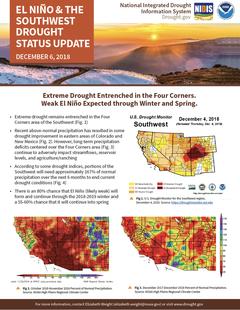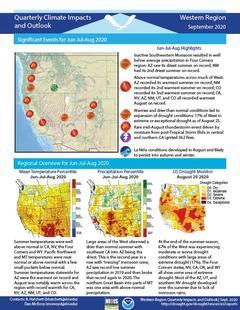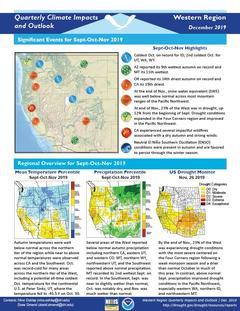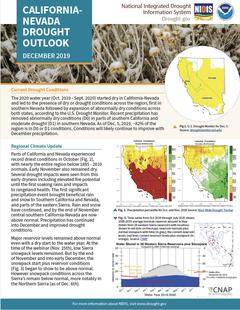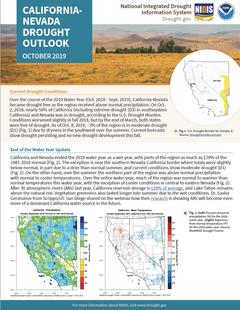Provides information on the typical La Niña winter pattern; the La Niña outlook; potential impacts; and comparisons of conditions during previous La Niña years.
NOAA’s Regional Climate Services Program created these outlooks to inform the public about climate impacts within their respective regions. Each regional report contains easy-to-understand language, and anyone can access them through the Drought Portal.
This water year recap and drought & climate webinar summary was originally sent via email to the California-Nevada DEWS email list.
Conditions Favor El Niño this Winter: Significant drought expected to lessen in parts of the Southwest and persist in others.
From October 2017 to September 2018, the Southwestern U.S. experienced below-normal to record-low precipitation.
Long-term precipitation deficits and record-high temperatures have contributed to very low streamflows and reservoir levels.
Conditions favor the development of El Niño this winter, but significant drought is expected to persist in most of Utah and Colorado.
WATER YEAR (OCTOBER 2017-SEPTEMBER 2018)
Extreme Drought Entrenched in the Four Corners. Weak El Niño Expected through Winter and Spring.
- Extreme drought remains entrenched in the Four Corners area of the Southwest.
- Recent above-normal precipitation has resulted in some drought improvement in eastern areas of Colorado and New Mexico.
Quarterly Climate Impacts and Outlook for the Western Region for June – August 2020. Dated September 2020.
Summer temperatures were well above normal in California, Nevada, the Four Corners and Wyoming. Pacific Northwest and Montana temperatures were near normal or above normal with a few small pockets below normal. Large areas of the West observed a drier than normal summer with southeast California into Arizona being the driest. This is the second year in a row with “missing” monsoon rains.
Quarterly Climate Impacts and Outlook for the Western Region for September – November 2019. Dated December 2019.
Autumn temperatures were well below normal across the northern tier of the region while near to above normal temperatures were observed across California and the Southwest. Several areas of the West reported below normal autumn precipitation including northern California, eastern Utah, and western Colorado. Montana, northern Wyoming, northwestern Utah, and the Southwest reported above normal precipitation.
Current Drought Conditions
The 2020 water year (Oct. 2019 - Sept. 2020) started dry in California-Nevada and led to the presence of dry or drought conditions across the region, first in southern Nevada followed by expansion of abnormally dry conditions across both states, according to the U.S. Drought Monitor. Recent precipitation has removed abnormally dry conditions (D0) in parts of southern California and moderate drought (D1) in southern Nevada. As of Dec. 5, 2019, ~82% of the region is in D0 or D1 conditions.
Current Drought Conditions
Over the course of the 2019 Water Year (Oct. 2018 - Sept. 2019), California-Nevada became drought free as the region received above normal precipitation. On Oct. 2, 2018, nearly 50% of California (including extreme drought (D3) in southeastern California) and Nevada was in drought, according to the U.S. Drought Monitor. Conditions worsened slightly in fall 2018, but by the end of March, both states were free of drought. As of Oct. 8, 2019, ~3% of the region is in moderate drought (D1) (Fig. 1) due to dryness in the southwest over the summer.


